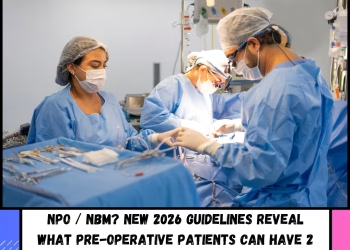 A Professor of Medicine at the Lagos State University College of Medicine, Prof. Olugbenga Awobusuyi, has dispelled the myth that holding urine for too long will cause kidney disease. According to him, such myth is untrue and lacks scientific evidence. Prof. Awobusuyi, who is also a Consultant Nephrologist at the Lagos State University Teaching Hospital, said there were certain health conditions that could cause kidney damage or disease, but not holding urine for too long. The nephrologist disclosed this during an interview with our correspondent while identifying hypertension, diabetes and glomerulonephritis as major causes of kidney disease. He said, “Holding urine for too long will not cause kidney disease. There are diseases that can cause kidney damage or kidney disease.
A Professor of Medicine at the Lagos State University College of Medicine, Prof. Olugbenga Awobusuyi, has dispelled the myth that holding urine for too long will cause kidney disease. According to him, such myth is untrue and lacks scientific evidence. Prof. Awobusuyi, who is also a Consultant Nephrologist at the Lagos State University Teaching Hospital, said there were certain health conditions that could cause kidney damage or disease, but not holding urine for too long. The nephrologist disclosed this during an interview with our correspondent while identifying hypertension, diabetes and glomerulonephritis as major causes of kidney disease. He said, “Holding urine for too long will not cause kidney disease. There are diseases that can cause kidney damage or kidney disease.
“Hypertension, diabetes and glomerulonephritis can destroy the kidney. “Apart from these three conditions, we also have other conditions that can damage the kidney. Some toxins, herbal medications and some painkillers can damage the kidney.”
According to him, patients who have sickle cell disease can have kidney damage. Additionally, the nephrologist said, stones in the kidney, some cancers, HIV, and Hepatitis B could cause kidney damage. Harping on prevention, Prof. Awobusuyi noted that if diabetes and hypertension are effectively controlled, the rate at which people are coming down with kidney disease would reduce.
“Hypertension and diabetes are diseases that we can control. If we are able to manage these two diseases, we will be able to reduce the rise in kidney disease. “If you look at those two diseases, they are diseases that come with age. So, those who have those diseases should seek medical intervention to avoid kidney damage. “If you don’t treat hypertension and you don’t control your diabetes, you are prone to having complications from those diseases and one the complications is kidney damage. “Those who have hypertension and diabetes must ensure that those conditions are brought under control”, he said.
Detecting kidney disease is simple and less expensive, the nephrologist says, advising people to go for regular health screening for early detection. He also enjoined those who have family history of kidney disease to go for regular health checks. He advised patients with kidney disease to seek treatment early. According to the World Health Organisation, if risk factors are identified early, acute kidney injury and chronic kidney disease can be prevented. The UN health agency added that if kidney disease was diagnosed early, worsening of kidney function could be slowed or averted by inexpensive interventions. In addition to diabetes, hypertension and other health conditions listed by the nephrologist as risk factors for kidney disease, the WHO says many low-income countries have problems with undernutrition and overnutrition and that both are risk factors for kidney disease as well.
“Malnutrition predisposes young children to infections like diarrhoeal diseases and pneumonia, that are important risk factors for acute kidney injury. “Among girls and female adolescents, undernutrition leads to underweight mothers and low-birth-weight offspring. “Low birth weights, preterm births and pregnancies affected by diabetes and pre-eclampsia, which, combined, may represent up to 20 percent of pregnancies worldwide, are all associated with increased lifetime risk of chronic kidney disease in both mothers and children. “Obesity increases the lifetime risk of end-stage kidney disease and maternal obesity is associated with adverse outcomes in pregnancy, including the gestational diabetes and preterm births that are associated with increased risk of chronic kidney disease”, says WHO.









